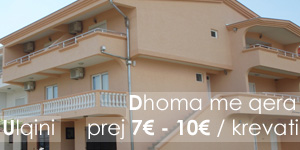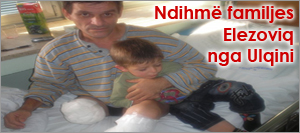Montenegro: Archbishop is hoping for a just solution in Kosovo
 Archbishop Zef Gashi of the diocese of Bar in Montenegro, who is of Albanian origin, spoke to the Catholic charity Aid to the Church in Need regarding the presidential elections in Serbia and said that he is hoping above all for “a just solution” for Kosovo. The situation in Kosovo had reached “such a state that a final line must now be drawn”, he said. Otherwise things might end in an “explosion” that “would benefit no one”.
Archbishop Zef Gashi of the diocese of Bar in Montenegro, who is of Albanian origin, spoke to the Catholic charity Aid to the Church in Need regarding the presidential elections in Serbia and said that he is hoping above all for “a just solution” for Kosovo. The situation in Kosovo had reached “such a state that a final line must now be drawn”, he said. Otherwise things might end in an “explosion” that “would benefit no one”.
“It would be justice to grant Kosovo its independence”, said the archbishop. He called upon Europe to consider the fact that during the past two decades the situation in the Balkans had been clarified but that Kosovo had remained an exception. “Europe must actually have an interest in bringing about a more stable situation and a more balanced coexistence within the Balkans”, he explained to ACN. Moreover, a people of 2 million, who had come through such dramatic and traumatic experiences as deportations and murders, had “a right to a brighter future”, he added.
Archbishop Gashi, who was born in Kosovo and worked there for a long time as a parish priest, explained that in terms of its demographic structure, Kosovo is one of the most youthful of nations, given that 60% of the population is under 35 years of age. Yet these young people could see no future for themselves, he said. In public life there was a general blockade, and scarcely any investment, since there was no security. This was leading many young people to emigrate abroad and causing those who remained behind to “suffocate while waiting for a better future”, he added. He did not however see problems with a fundamentalist Islam. He knew politicians and intellectuals and had the impression that Kosovo had for the past 20 to 30 years been strongly inclined towards the West.
Kosovo remains nominally under Serbian rule. However, it has been administered by the United Nations since 1999. Catholics represent only a tiny minority of around 60,000 people among a predominantly Muslim population of almost 1.9 million. Ethnic Albanians make up over 90% of the population, while the remainder of the population are mostly Serbs. Presidential elections took place last Sunday in Serbia and are widely seen as an indicator of the future course of the country in regard to the Kosovo issue.






